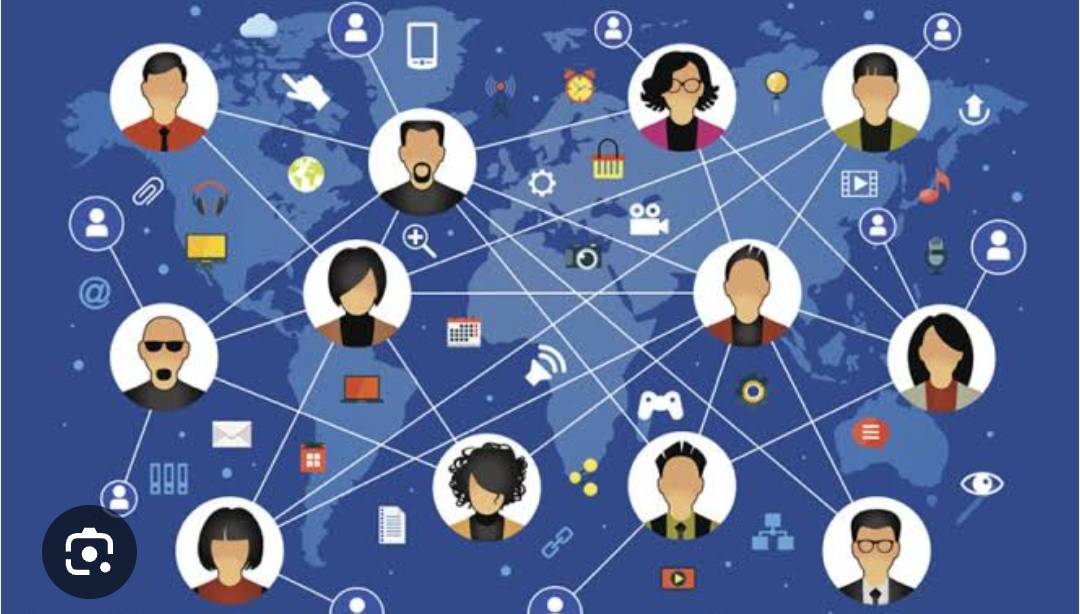Title: The Power and Impact of Online Communities
: Introduction. today’s digital age, online communities have become an integral part of our social lives. Whether it's for personal support, shared interests, or professional development, these communities foster connections that transcend geographical boundaries. But what makes online communities so powerful? This article explores the significance, benefits, challenges, and future of online communities.
What Are Online Communities? Online communities refer to virtual spaces where people interact, share experiences, and collaborate based on common interests, goals, or identities. These communities can be found on social media platforms, forums, chat groups, and specialized websites. They serve as hubs for like-minded individuals to connect and communicate in real-time or asynchronously.
The Growth of Online Communities: The rise of the internet and social media platforms has made it easier than ever to find communities tailored to specific interests. Whether you’re passionate about gaming, fitness, coding, art, or mental health, there’s a community for everyone. Online platforms like Reddit, Facebook groups, Discord, and Twitter have become major players in connecting individuals and creating spaces where conversations and collaboration can thrive.
Benefits of Online Communities:
Connection and Support: One of the most significant advantages of online communities is the ability to connect with people across the world. For many, these communities offer emotional support, advice, and a sense of belonging. For instance, people struggling with mental health issues can find reassurance in forums where others share similar experiences.
Learning and Growth: Online communities serve as great platforms for knowledge exchange. Whether you’re a professional seeking industry insights or a hobbyist looking to improve your skills, there are communities dedicated to every subject imaginable. This shared learning environment helps individuals grow and develop new perspectives.
Networking and Career Opportunities: Many online communities are centered around professional interests, offering opportunities for networking, collaboration, and career advancement. Sites like LinkedIn groups and specialized forums allow individuals to connect with others in their field, discover job openings, and even collaborate on projects.
Creative Collaboration: Online communities provide a collaborative space for creators—whether writers, artists, or musicians—to share their work and receive constructive feedback. Platforms like DeviantArt, Behance, or YouTube communities allow creators to interact with fans and fellow creators, leading to new ideas, collaborations, and recognition.
Challenges Faced by Online Communities:
Toxicity and Harassment: Despite the positive aspects, online communities are often plagued by toxic behavior. Harassment, trolling, and cyberbullying are common issues that can discourage people from participating or feeling safe in these spaces. Community moderators and platform policies play an essential role in mitigating these issues, but they remain ongoing challenges.
Echo Chambers: Online communities, particularly on social media, can sometimes become echo chambers, where members only interact with those who share similar views. This can create an environment of confirmation bias, hindering meaningful discourse and reinforcing narrow perspectives.
Privacy Concerns: With the growing concerns about data privacy, online communities may face challenges related to how personal information is shared, used, and stored. Users often trade off privacy for the benefits of connection, which can lead to exploitation if not properly managed by platform providers.
The Future of Online Communities: The evolution of online communities will likely be shaped by advances in technology. Virtual reality (VR) and augmented reality (AR) may soon play a more prominent role in creating immersive community experiences, allowing for more interactive and engaging spaces. Furthermore, with AI’s increasing role in moderating content and facilitating personalized connections, online communities may become even more tailored to the individual’s needs and preferences.
However, as these communities evolve, there will also be a greater emphasis on ethical behavior, privacy protection, and combating harmful practices such as misinformation.
Conclusion: Online communities have revolutionized the way we connect, learn, and collaborate. While they come with their own set of challenges, the benefits they offer in terms of connection, support, and growth are undeniable. As technology continues to evolve, so too will these communities, and they will likely remain an essential part of our digital lives for years to come. Whether you’re looking to expand your network, explore new ideas, or simply find people who share your passions, online communities offer an endless space for interaction and connection.
This structure covers key aspects of online communities, from their definition and benefits to challenges and future prospects. You can expand on each section as needed to tailor the article to your target audience or word count requirements.




No comments yet
Be the first to share your thoughts!